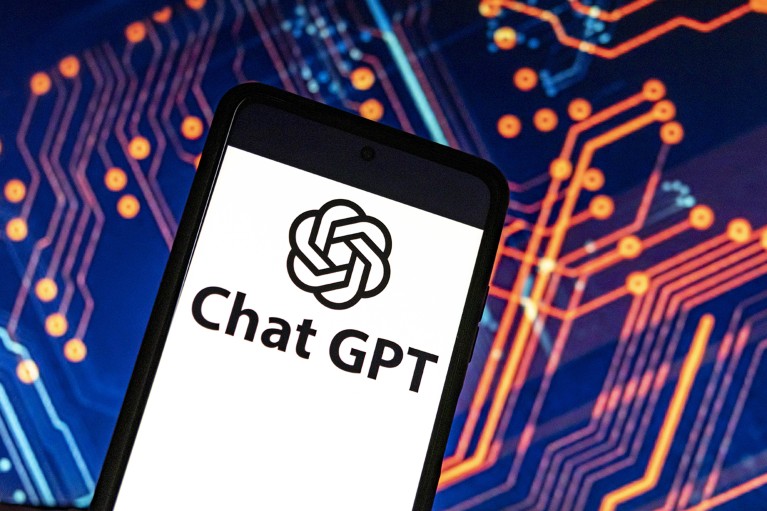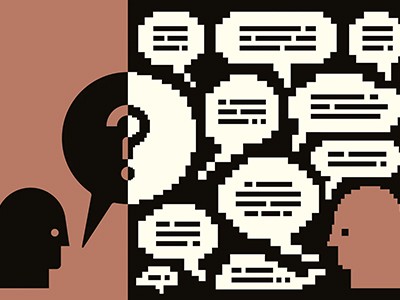
ChatGPT is a generative artificial intelligence system that learns from large amounts of human-produced data.Credit: Nicolas Economou/NurPhoto via Getty
In the two years since ChatGPT was released to the public, researchers have been using it to polish their academic writing, review the scientific literature and write code to analyse data. Although some think that the chatbot, which debuted widely on 30 November 2022, is making scientists more productive, others worry that it is facilitating plagiarism, introducing inaccuracies into research articles and gobbling up large amounts of energy.
AI is complicating plagiarism. How should scientists respond?
The publishing company Wiley, based in Hoboken, New Jersey, surveyed 1,043 researchers in March and April about how they use generative artificial intelligence (AI) tools such as ChatGPT, and shared the preliminary results with Nature. Eighty-one per cent of respondents said that they had used ChatGPT either personally or professionally, making it by far the most popular such tool among academics. Three-quarters said they thought that, in the next 5 years, it would be important for researchers to develop AI skills to do their jobs.
“People were using some AI writing assistants before, but there was quite a substantial change with the release of these very powerful large language models,” says James Zou, an AI researcher at Stanford University in California. The one that caused an earth-shattering shift was that underlying the chatbot ChatGPT, which was created by the technology firm OpenAI, based in San Francisco, California.
To mark the chatbot turning two, Nature has compiled data on its usage and talked to scientists about how ChatGPT has changed the research landscape.
ChatGPT by the numbers
• 60,000: the minimum number of scholarly papers published in 2023 that are estimated to have been written with the assistance of a large language model (LLM)1. This is slightly more than 1% of all articles in the Dimensions database of academic publications surveyed by the research team.
• 10%: the minimum percentage of research papers published by members of the biomedical science community in the first half of 2024 estimated to have had their abstracts written with the help of an LLM2. Another study estimated the percentage to be higher — 17.5% — for the computer science community in February3.
• 6.5–16.9%: the percentage of peer reviews submitted to a selection of top AI conferences in 2023 and 2024 that are estimated to have been substantially generated by LLMs4. These reviews assess research papers or presentations proposed for the meetings.
Writing assistant
All of these figures, which were obtained by evaluating patterns and keywords in text that are characteristic of LLMs, are probably conservative estimates, says Debora Weber-Wulff, a computer scientist and plagiarism researcher at the HTW Berlin University of Applied Sciences. Her work shows that detection tools have been failing to determine whether a paper has been written with the assistance of AI5.
In the past two years, scientists have found that using ChatGPT to draft paper abstracts, as well as grant applications and letters of support for students, gives them more capacity to focus on complex tasks. “The things that deserve our time are the hard questions and the creative hypotheses,” says Milton Pividori, a medical informatician at the University of Colorado School of Medicine in Aurora.
Could AI help you to write your next paper?
LLMs can be especially useful for overcoming language barriers, researchers say. “It democratizes writing and it helps folks that have English as a second language,” says Gabe Gomes, a chemist at Carnegie Mellon University in Pittsburgh, Pennsylvania. An analysis posted ahead of peer review on the preprint server SSRN in November found that the quality of writing in papers by authors whose first language is not English improved after the release of ChatGPT and did so by more than the writing in papers by authors who are fluent in English6.


